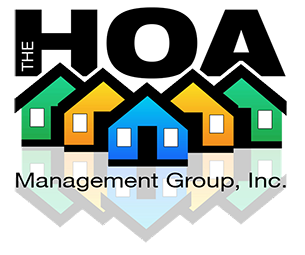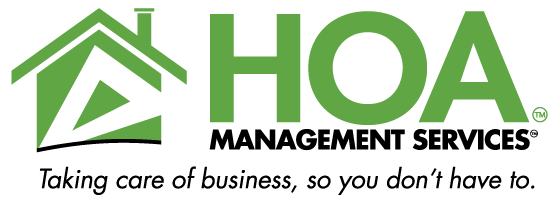Professional in HOA Management San Antonio : Raise Your Community's Requirements
Professional in HOA Management San Antonio : Raise Your Community's Requirements
Blog Article
From Financials to Maintenance: Understanding the Art of HOA Monitoring for Area Associations
Managing a community organization calls for a delicate balance in between economic obligations, effective interaction, and efficient upkeep operations. From supervising budget plans and economic statements to coordinating upkeep jobs and implementing guidelines and policies, HOA monitoring can be a complex art that requires a diverse collection of abilities. In this discussion, we will explore the various facets of HOA administration, from the details of financial administration to the relevance of maintaining a well-functioning community. By delving right into these vital areas, we intend to supply important insights and approaches for grasping the art of HOA administration, leaving you equipped with the understanding and tools needed to navigate the challenges that might develop within your community organization.
Recognizing Financial Obligations
What are the key financial obligations that area associations require to understand and handle successfully? Neighborhood organizations play an essential function in managing the finances of their areas. hoa management san antonio. To guarantee the monetary health of the association, a number of crucial duties should be understood and managed effectively
First and primary, community organizations should develop and keep a thorough budget. This involves precisely estimating expenditures and revenue sources, such as monthly dues, unique evaluations, and rental revenue. A well-planned budget allows associations to assign funds for required costs, such as upkeep and repair services, insurance premiums, and book funds for future funding projects.
Another important economic duty is the collection of assessments and fees. Community associations have to ensure reliable and prompt collection of these charges to cover functional expenses and keep the financial security of the association. This consists of implementing a clear and transparent repayment plan, attending to delinquencies immediately, and imposing any kind of required lawsuits.
In addition, neighborhood associations need to preserve exact monetary records and prepare normal economic statements. These declarations offer a clear image of the organization's monetary health, consisting of revenue, expenses, and books. Regular financial coverage enables board members and home owners to track the organization's economic efficiency and make notified choices pertaining to budgeting and investing.
Lastly, neighborhood associations must follow all suitable economic laws and tax obligation needs. This includes declaring tax obligation returns, keeping appropriate documentation, and adhering to any type of lawful commitments connected to financial management.
Reliable Communication and Collaboration
Efficient communication and partnership are vital for effective HOA monitoring and cultivating a natural area. Community associations rely upon effective interaction to share essential information, address issues, and make certain transparency. A consistent and clear line of interaction in between the HOA board, locals, and building administration is essential for a well-functioning neighborhood.
One method to promote efficient interaction is via regular newsletters or emails that offer updates on area events, jobs, and essential news. This permits citizens to remain notified and participated in the area. In addition, developing open lines of interaction via community forums or town hall conferences can offer a system for citizens to articulate their viewpoints, ask concerns, and add to decision-making processes.
Partnership is just as crucial in HOA management. Urging partnership amongst board boards, citizens, and participants promotes a feeling of ownership and shared obligation. By entailing locals in the decision-making process and proactively seeking their input, the community organization can produce a much more inclusive and harmonious atmosphere.
To facilitate efficient partnership, HOA administration should establish clear objectives and objectives, delegate responsibilities, and encourage teamwork. Normal conferences, both official and casual, supply a chance for stakeholders to review concepts, address worries, and job in the direction of common goals. By fostering a collective atmosphere, community organizations can harness the diverse skills, knowledge, and viewpoints of their locals to drive positive adjustment and boost community living.
Improving Maintenance Procedures
Improving upkeep procedures is vital for cost-efficient and effective HOA administration. By applying efficient approaches, neighborhood organizations can make certain that maintenance tasks are executed smoothly and in a timely fashion, reducing interruptions and taking full advantage of resident fulfillment.

On top of that, making use of technology can significantly boost upkeep procedures. Executing an electronic maintenance monitoring system (CMMS) allows organizations to track work orders, schedule preventive maintenance, and maintain an organized document of maintenance tasks. This not only improves effectiveness however also offers a liable and clear system for both locals and management.
In addition, outsourcing certain upkeep jobs can also streamline procedures. By hiring specialized professionals for tasks such as swimming pool upkeep or landscaping, organizations can ensure that these tasks are dealt with by specialists with the required experience, freeing up inner sources to concentrate on various other elements of HOA administration.
Focusing On Regulations and Rules
To make certain effective and organized community living, focusing on and implementing laws and guidelines is other crucial for effective HOA administration. hoa management san antonio. Neighborhood organizations depend on a collection of standards to safeguard and keep an unified setting building worths. By clearly specifying and focusing on rules and policies, HOA monitoring can make sure that citizens understand their obligations and expectations
One of the very first steps in focusing on policies and guidelines is to identify those that are essential for the area's wellness. This might involve conducting a comprehensive review of the existing guidelines and guidelines and identifying any type of voids or areas that need improvement. It is critical to entail community participants in this procedure to guarantee their buy-in and to attend to any type of problems or recommendations they may have.
As soon as the most essential guidelines and regulations have been determined, HOA administration must make sure that they are efficiently interacted to locals. This can be done through various ways, such as newsletters, e-mails, area meetings, and publishing notifications alike areas. Regular and clear interaction is vital to make sure that homeowners are mindful of the policies and guidelines and comprehend the consequences of non-compliance.
Enforcement of policies and rules is equally important important site in preserving a well-functioning community. HOA management should develop a fair and regular enforcement process, which might consist of cautions, penalties, and various other suitable procedures. hoa management san antonio. It is necessary to strike a balance between implementing the policies and rules and maintaining favorable relationships with citizens
Navigating Legal and Compliance Issues
Navigating lawful and compliance concerns is essential for HOA administration to ensure adherence to legislations and policies. Neighborhood organizations have to operate within the bounds of the regulation to keep the trust fund and confidence of house owners and stakeholders. Failure to abide by legal demands can result in legal conflicts, penalties, and damage to the association's credibility.
To browse these concerns efficiently, HOA management ought to remain upgraded on federal, state, and local laws that regulate community associations. This consists of recognizing regulation pertaining to reasonable real estate, building, tax, and employment management. Conformity with these laws entails applying policies and treatments that secure the legal rights of property owners and ensure openness in operational and monetary issues.
Along with lawful responsibilities, HOA administration need to also abide by the association's regulating documents, such as the bylaws, problems, limitations, and covenants (CC&R s) These files outline the regulations and regulations that govern the area and may include stipulations pertaining to building maintenance, architectural guidelines, and conflict resolution processes.

Final Thought
In conclusion, mastering the art of HOA management for neighborhood associations needs a detailed understanding of economic duties, reliable interaction and collaboration, improving maintenance procedures, prioritizing guidelines and policies, and navigating lawful and compliance issues. By successfully carrying out these strategies, neighborhood associations can guarantee the smooth performance and total well-being of their communities.
By diving right into these vital areas, we aim to provide valuable understandings and approaches for mastering the art of HOA monitoring, leaving you outfitted with the knowledge and devices required to navigate the challenges that might emerge within your community association.
Community associations play a crucial duty in handling the finances of their neighborhoods. Neighborhood associations need to ensure efficient and prompt collection of these fees to cover functional costs and maintain the financial security of the organization. By promoting a collaborative environment, area associations can harness the diverse abilities, expertise, and point of views of their homeowners to drive positive adjustment and improve neighborhood living.
To browse these concerns properly, HOA management ought to stay upgraded on federal, state, and neighborhood legislations that control neighborhood organizations.
Report this page